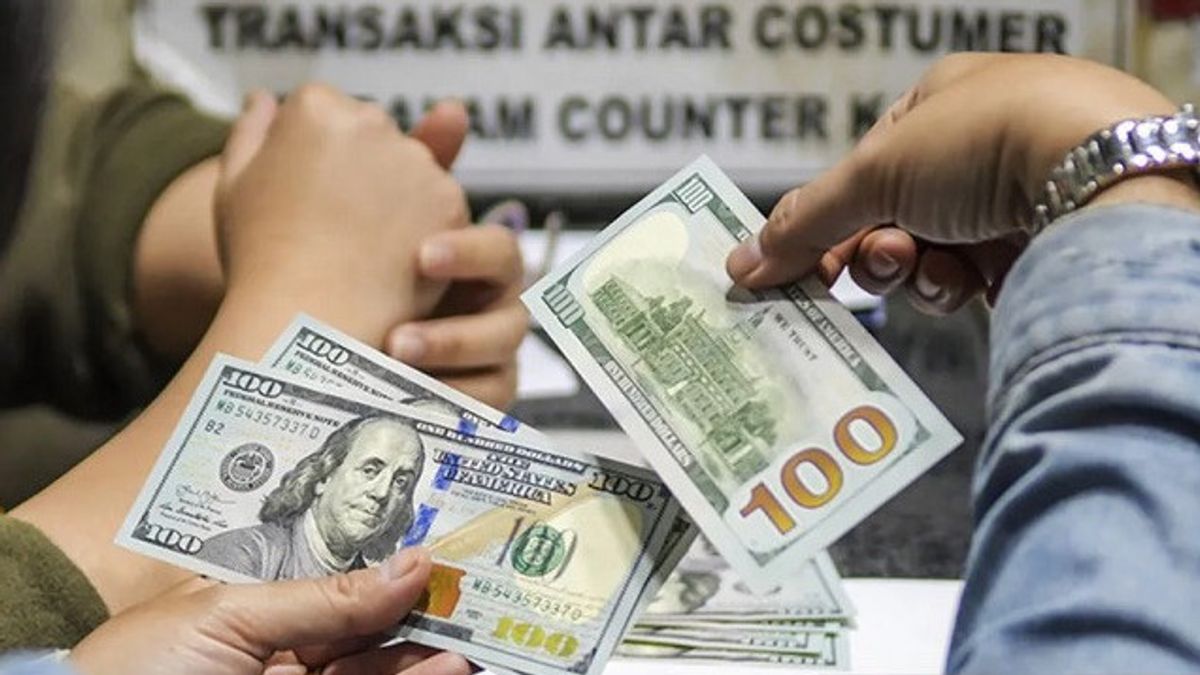JAKARTA The rupiah exchange rate that continues to weaken against the United States (US) dollar is said to have a terrible impact on Indonesia, one of which is the potential for termination of employment (PHK) by entrepreneurs.
The rupiah exchange rate against the US dollar is still moving in the upper range of Rp. 16,300, and even touched the level of Rp. 16,400 on Friday (14/6/2024).
In fact, the movement of the rupiah was quite stable in the period January to April 2024, which was in the range of Rp. 15,300 per US dollar. However, the rupiah had touched the level of Rp. 16,000 in mid-April.

Although it had strengthened throughout May, the US dollar again pushed the rupiah to the upper range of Rp. 16,200 in early June 2024. This figure continued to decline at the end of last week.
This condition is called the General Chairperson of the All-Indonesian National Importers Association (GINSI) Subandi, which burdens business actors, especially those who carry out import activities.
"And what is difficult is not only importers, but the community because they can't afford to buy their needs," said Subandi.
Potential to impoverish society
The phenomenon of the weakening of the rupiah exchange rate against the US dollar is considered by a number of economists to have an impact on the increase in goods, especially imported goods, and even creating new poor people. Director of Economics at the Center of Economic and Law Studies (CELIOS) Nailul Huda said strengthening the US dollar would make the price of goods in Indonesia even higher, one of which was fuel or fuel oil.
Because Indonesia is an oil and fuel importer whose purchase is in US dollars, when Uncle Sam's currency continues to strengthen the price of oil, it will also rise.
"Imported inflation increases, fuel prices are usually the ones that will be sacrificed," explained Huda.
With conditions like those above, people's purchasing power can be eroded and Huda is worried that this situation will make the poverty rate threatened to increase.

Domestic inflation will increase significantly. Purchasing power is depressed, economic growth is hampered. Poverty will increase," Huda added.
Executive Director of the Institute for Development of Economics and Finance (INDEF) Esther Sri Astuti said the weakening of the rupiah exchange rate against the US dollar could have an impact on the state budget, namely the swelling of government spending. He gave an example of energy and defense spending, the majority of which are imports.
The government must also pay debt and interest installments in dollars to be more expensive. In the aftermath, the fiscal space of the state budget becomes small.
"(The purchase) of the state budget has become more swollen because of the assumption that the US dollar is used for government spending related to imports and installments of debt and higher interest. This means that fiscal space is shrinking and the real sector is affected because government spending is reduced," said Esther.
Threats to Workers
The increase in the US dollar has also caught the attention of entrepreneurs. General Chairperson of GINSI Subandi said that the impact of the weakening of the rupiah is feared to be unable to be handled by entrepreneurs for a long time.
"In a long period of time, entrepreneurs will find it difficult to carry out activities and end up layoffs to reduce the risk of losses," he explained.
Seeing this condition, business actors continue to prepare a number of anticipatory steps. Starting from delaying transactions that use US dollars, increasing the selling price of products, to reducing the size and dose.
SEE ALSO:
Subandi said the second option was difficult because it actually had a risk of worsening conditions considering the purchasing power of the people who also fell.
"Of the three, what is already running is to reduce production and postpone transactions, wait until the dollar currency drops," said Subandi.
"To reduce the long-term risk, entrepreneurs will also cut costs, including one of which is temporarily laying off or permanently their employees," Subandi added.
The English, Chinese, Japanese, Arabic, and French versions are automatically generated by the AI. So there may still be inaccuracies in translating, please always see Indonesian as our main language. (system supported by DigitalSiber.id)














